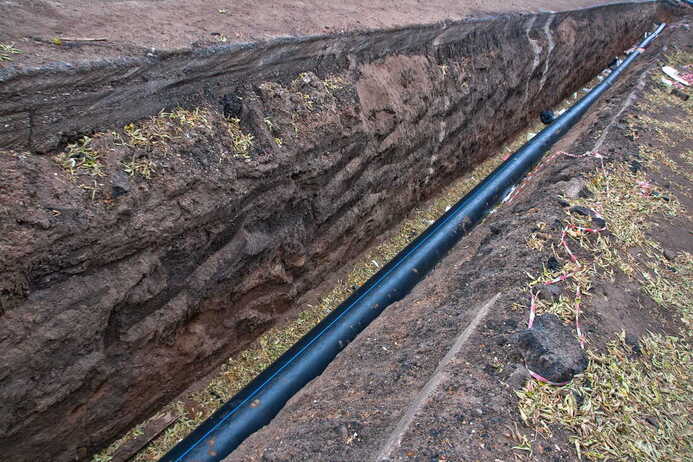December 1, 2020
Paradise, CA Believes HDPE Pipe Is the Answer to Rebuild Water System
Paradise, CA Believes HDPE Pipe Is the Answer to Rebuild Water System
Paradise, California, which was destroyed by the Camp Fire in November 2018, is in the process of rebuilding the town’s water service lines with 315,000 feet of new 1” and 2” diameter HDPE pipe. The town manager says HDPE pipes provide the corrosion protection needed along with the flexibility to withstand shifting soil conditions and earthquakes. HDPE piping is also easy to work with, allows for fast installation as building permits are granted, and will allow the town to upsize the service lines as needed.
In the summer of 2019 there were stories that suggested that melted plastic pipes were the cause of benzene levels in the town’s drinking water. In response, Dr. Bryan Hauger re-published open literature data in October of 2019 showing a direct linkage between burning wood and the generation of benzene. In October of 2020, in a strong defense of plastic pipe, the Plastic Pipe Institute (PPI) responded to the stories by publishing the results of its own study that show no benzene is produced by burning polyethylene. It has since been concluded that the benzene pollution originated from the burned environment surrounding the damaged pipes. Kevin Phillips, Town Manager for the Town of Paradise, points out that even the copper and galvanized steel pipes in the service laterals had the same benzene pollution, helping to prove the cause was not the polyethylene pipes. To help prevent future pollution events from happening, the town is also installing backflow protection.
To read Dr. Hauger’s October 2019 blog post, click here.
To read more about Paradise’s new HDPE system, click here.
In the summer of 2019 there were stories that suggested that melted plastic pipes were the cause of benzene levels in the town’s drinking water. In response, Dr. Bryan Hauger re-published open literature data in October of 2019 showing a direct linkage between burning wood and the generation of benzene. In October of 2020, in a strong defense of plastic pipe, the Plastic Pipe Institute (PPI) responded to the stories by publishing the results of its own study that show no benzene is produced by burning polyethylene. It has since been concluded that the benzene pollution originated from the burned environment surrounding the damaged pipes. Kevin Phillips, Town Manager for the Town of Paradise, points out that even the copper and galvanized steel pipes in the service laterals had the same benzene pollution, helping to prove the cause was not the polyethylene pipes. To help prevent future pollution events from happening, the town is also installing backflow protection.
To read Dr. Hauger’s October 2019 blog post, click here.
To read more about Paradise’s new HDPE system, click here.

